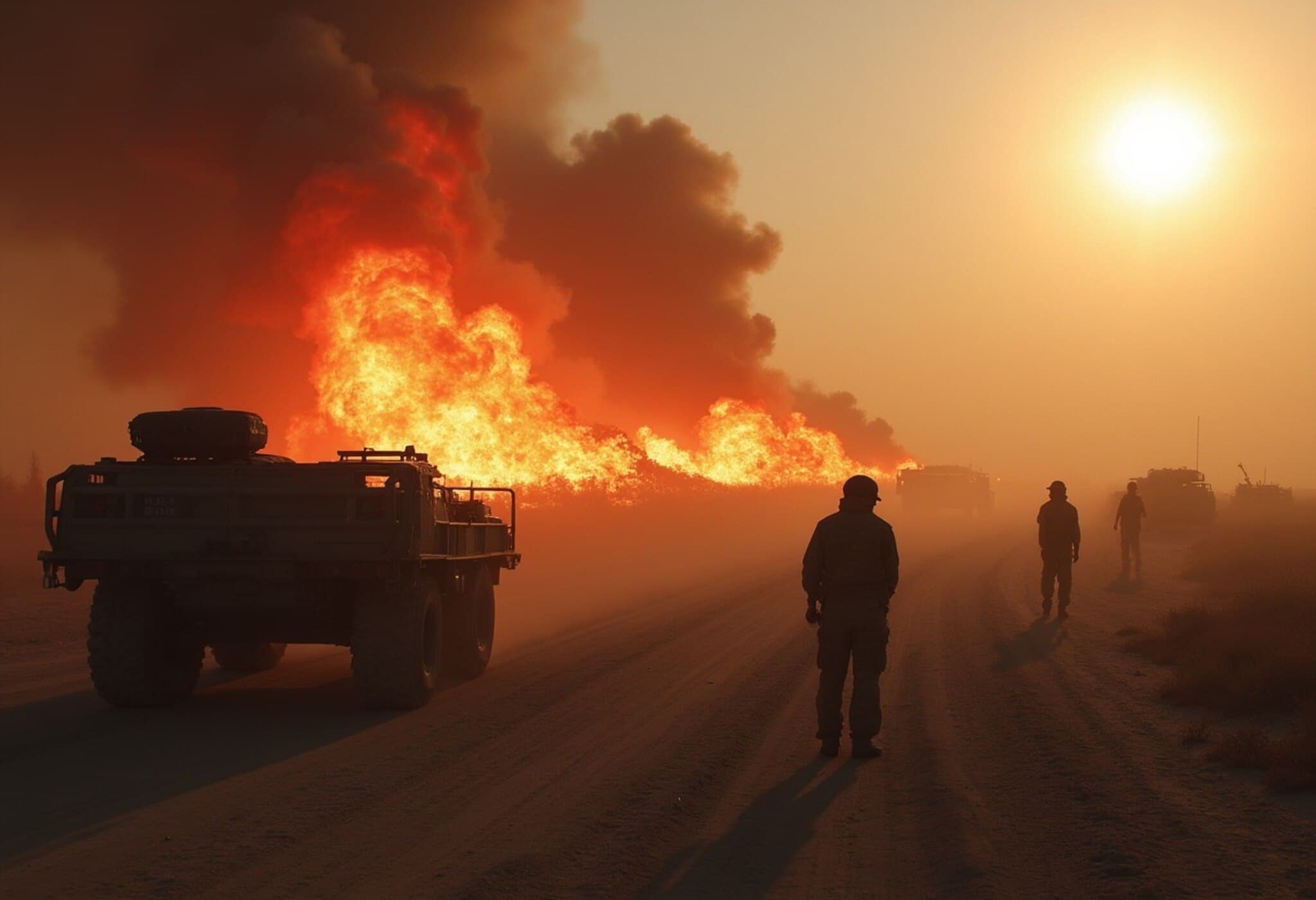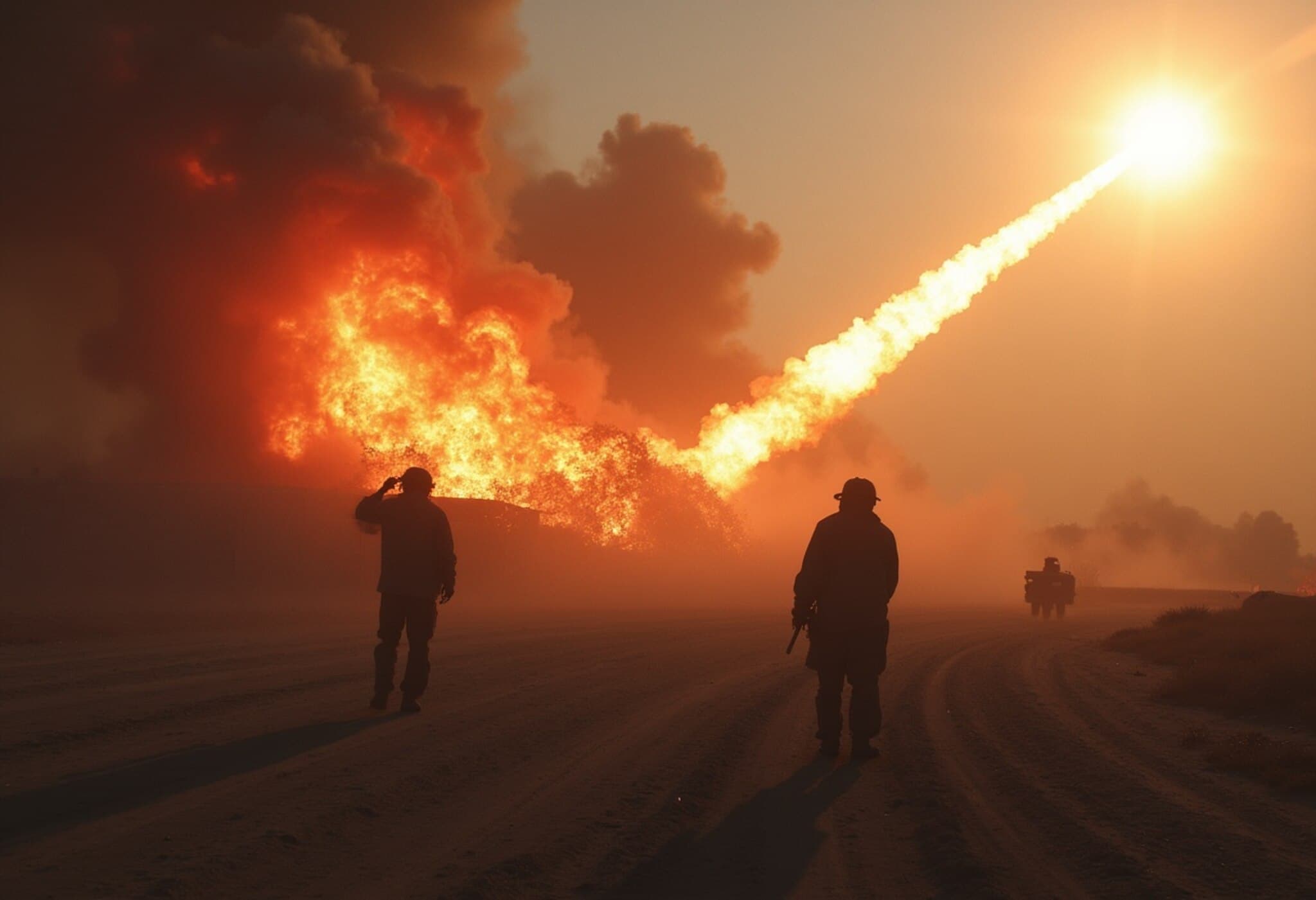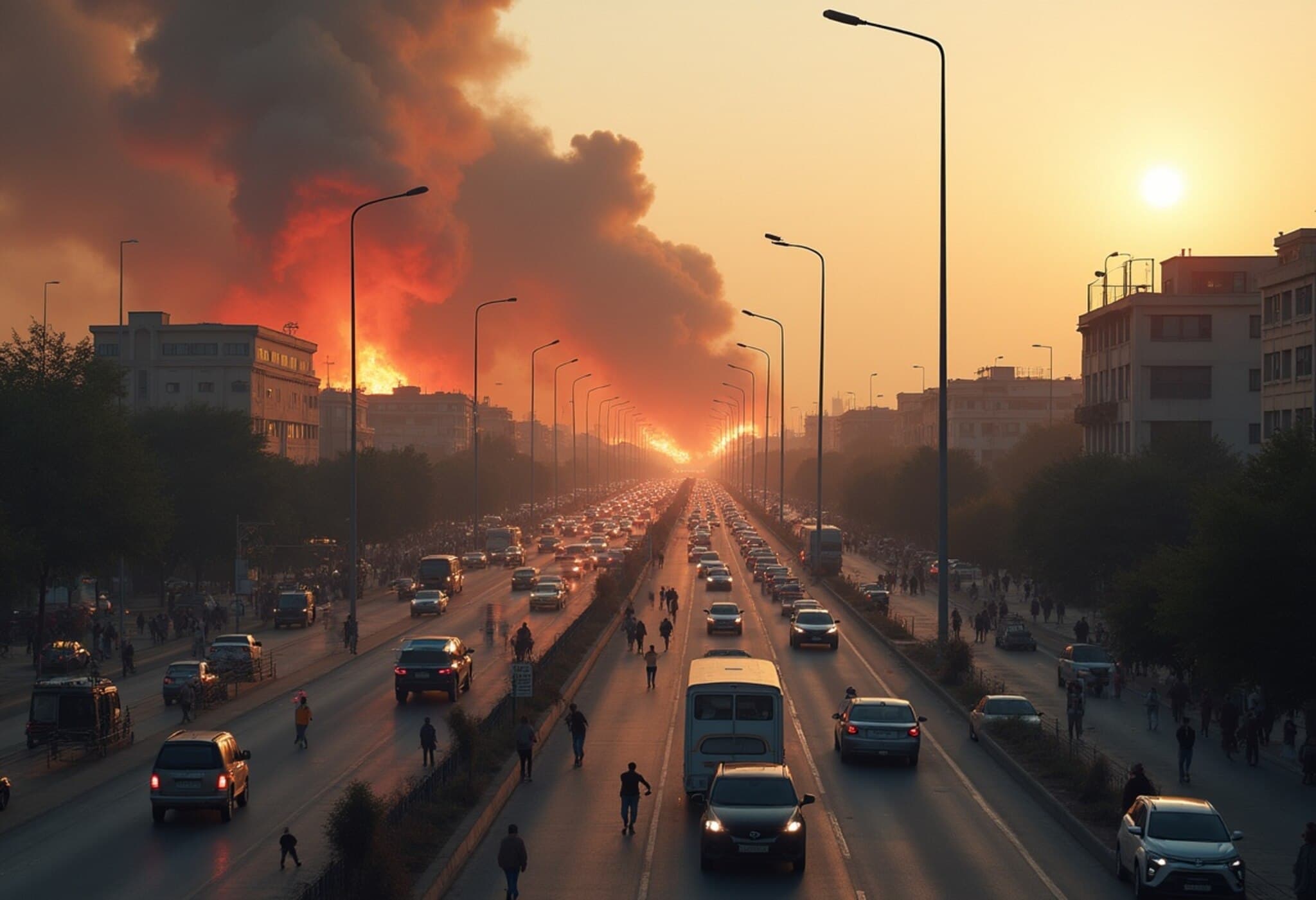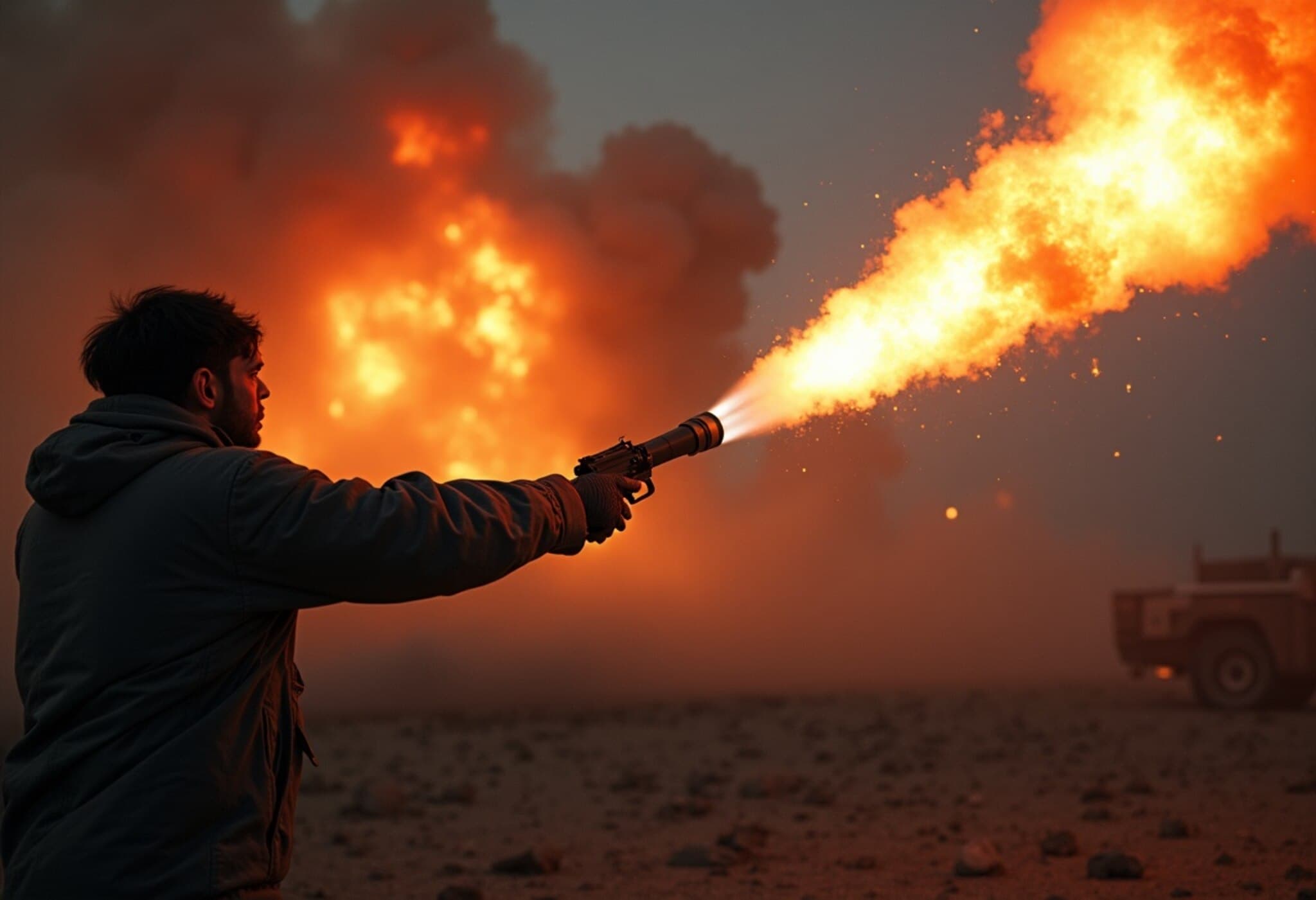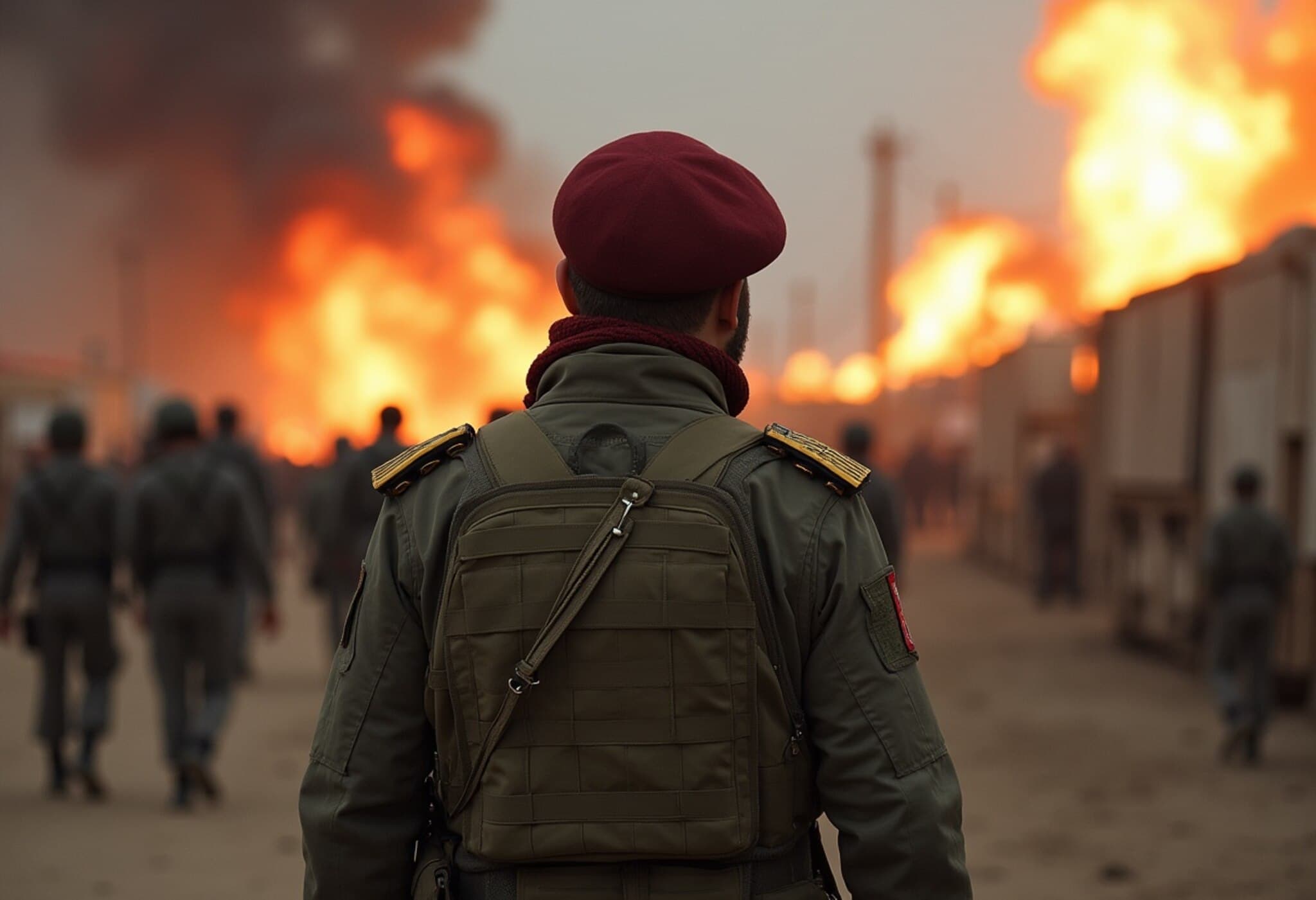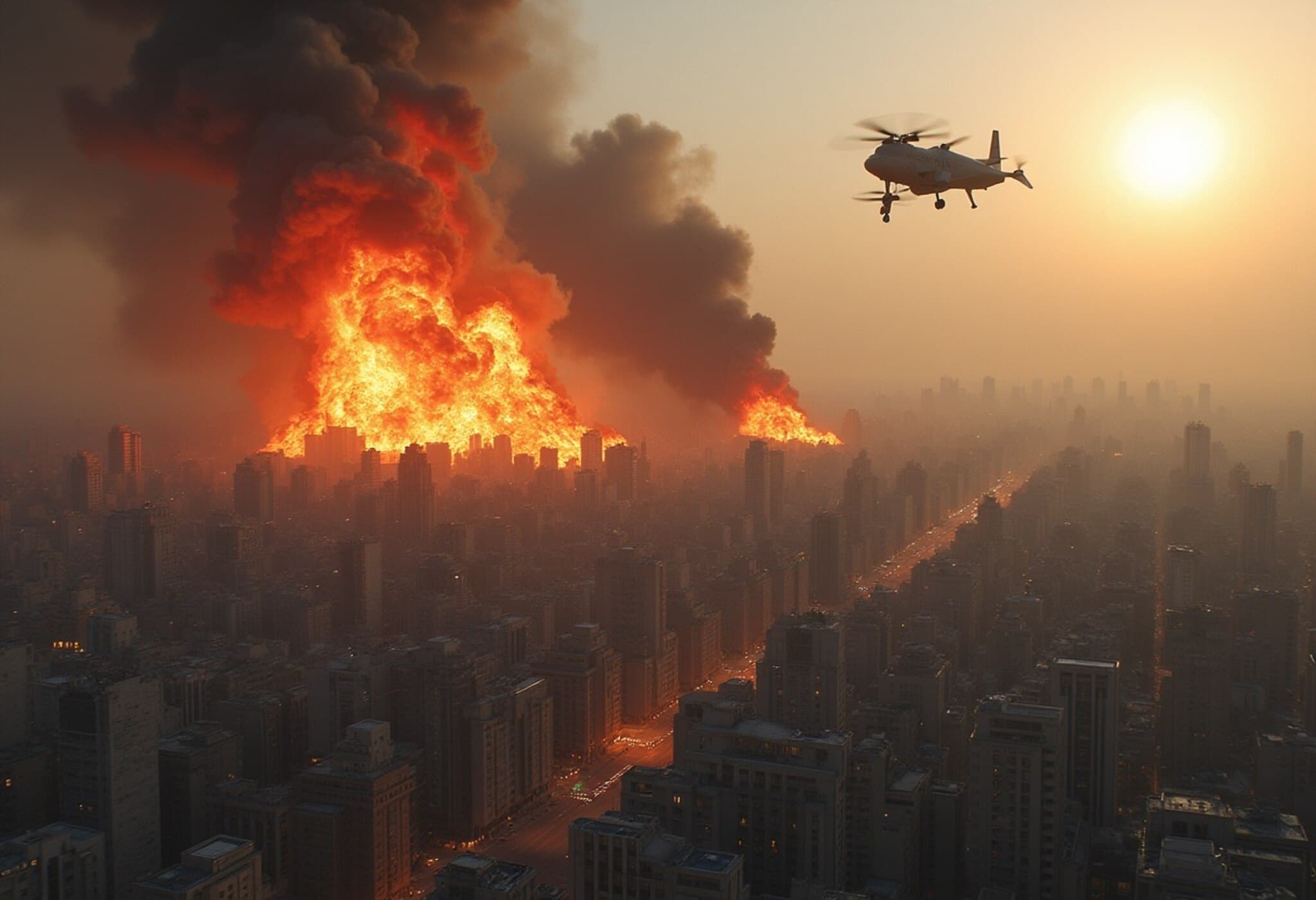Tehran Residents Escape Amid Rising Israeli Airstrike Threats
As tensions soar, thousands of residents in Tehran are urgently abandoning their homes, stocking up on essentials and seeking safer locations amid fears of intensified Israeli airstrikes. The Israeli military's repeated warnings urging Iranian civilians to evacuate certain areas have stirred anxiety about a potential surge in aerial attacks.
Government Dismisses Warnings as Psychological Warfare
While Iranian officials dismiss these alerts as mere "psychological warfare" and urge calm, the visible reality tells a different story. State media broadcasts reveal congested roads as people attempt to flee the city, highlighting a growing sense of panic among the population.
Life Under Threat: Voices from Tehran
Residents describe a grim picture. Shahriyar, 38, questions the options available: "We have nowhere to go. Where should we go? How long must we stay away from our homes?" Meanwhile, art teacher Arshia and his family have relocated to Damavand, approximately 50 km east of Tehran. "My parents are scared. There are nightly attacks without sirens or shelters. Why must ordinary people suffer for the regime's aggressive policies?" he lamented.
Critical Infrastructure and Safety Shortcomings Revealed
The ongoing strikes expose serious gaps in Tehran’s civil defense. Despite the existence of underground missile facilities, suitable bomb shelters for civilians are missing. In response, authorities announced that mosques, schools, and subway stations would remain operational 24/7 as makeshift shelters during air raids.
Gholamreza Mohammadi, a 48-year-old government worker, paints a desperate image: "No sirens, no shelters, and now even accessing cash is difficult. Food prices keep climbing. My children are terrified and sleepless due to the repeated explosions. We hide under our dining table because we have nowhere else to go."
Casualties and Communication Blackouts Heighten Worries
An Iranian official disclosed that the death toll has reached at least 224, with civilians constituting 90% of casualties. Israeli retaliatory missile strikes have claimed the lives of 24 civilians in Israel.
Moreover, independent monitoring revealed that international internet connectivity in Iran dropped by nearly 50%, signaling deliberate disruptions amid escalating conflict. The security forces have cracked down on suspected espionage and misinformation, arresting dozens accused of liaising with Israel or spreading panic.
Heightened Security Measures and Checkpoints Nationwide
The hardline Basij militia has ramped up enforcement with new checkpoints and night patrols across the country to curb sabotage and maintain control. Many families are sending relatives to safer hometowns; Mohammad, 45, shared how he sent his wife and children south for protection while he remains due to work commitments.
Struggle for Essentials Intensifies
The aftermath of recent missile strikes left several districts battered, fueling an exodus and frantic attempts to secure basic needs. Maryam, a 33-year-old teacher, described the relentless explosions overnight and the rush to withdraw limited cash amidst bank restrictions.
Supply shortages loom large, with shopkeepers reporting hoarding of food, cooking gas, and water. Pharmacies also face surges, especially from elderly customers worried about medicine availability. Despite government assurances of adequate food and medicine stocks, skepticism runs high, illustrated by retired bank employee Zeynab's somber remark: "No one knows when this war will end. We must prepare for the worst."
Conclusion: An Uncertain and Troubling Future
With fear spreading and safety nets lacking, Tehran's residents grapple with the harsh realities of war on their doorstep. As the conflict between Iran and Israel escalates, the human cost and disruption to everyday life continue to mount, leaving countless families in search of security and peace.






